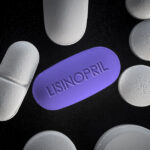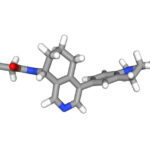Blood pressure medications have side effects, just as many other medications. Many believe that if side effects are mentioned in the descriptions of the medications, they will experience them. It is not true. The incidence and severity of side effects vary depending on the specific medication and individual patient factors.
In fact, blood pressure medications have in general low incidence of side effects. In comparison, medications for other chronic diseases also present notable side effects. For instance, statins, used to treat hypercholesterolemia, have been associated with side effects such as high blood glucose levels, increasing the risk for diabetes, and abnormal liver enzyme levels. Some antidepressants prescribed for chronic pain management in older adults have raised concerns due to potential harm, including side effects like increased risk of falls.
Common Side Effects of Antihypertensive Medications
Understanding the typical side effects associated with each class of antihypertensive drugs can help us manage them effectively:
Diuretics (Water Pills)
- What they do: Increase urine output to reduce blood pressure.
- Common side effects: weakness, dizziness, increased sensitivity to sunlight, muscle cramps, and electrolyte imbalances.
Beta-Blockers
- What they do: Reduce heart rate and the force of contraction.
- Common side effects: fatigue, cold hands and feet, and sleep disturbances.
ACE Inhibitors
- What they do: Prevent the formation of a hormone that narrows blood vessels.
- Common side effects: persistent dry cough, elevated blood potassium levels, and, rarely, angioedema (swelling under the skin).
Angiotensin II Receptor Blockers (ARBs)
- What they do: Block the action of a hormone that tightens blood vessels.
- Common side effects: dizziness, headache, and elevated blood potassium levels.
Calcium Channel Blockers
- What they do: Relax blood vessels by blocking calcium entry into cells.
- Common side effects: swollen ankles, dizziness, and constipation.
Examples of Strategies to Manage Side Effects
Managing side effects from blood pressure-lowering medications is crucial for effective treatment. Here are specific strategies to address common side effects.
Diuretics (e.g., Hydrochlorothiazide)
- Electrolyte Imbalances: Monitor blood levels of potassium, sodium, and magnesium regularly. Consume potassium-rich foods like bananas and oranges to counteract hypokalemia. Consider potassium supplements if advised by your healthcare provider
- Hyperuricemia and Gout: Be aware that diuretics can increase uric acid levels, potentially leading to gout. Maintain adequate hydration and limit intake of purine-rich foods to mitigate this risk.
Beta-Blockers (e.g., Metoprolol)
- Bradycardia (Slow Heart Rate): Regularly check your pulse. Report significant decreases to your healthcare provider.
- Bronchospasm: Non-selective beta-blockers may cause breathing difficulties. Individuals with respiratory conditions like asthma should consult their doctor for alternative treatments.
- Hypoglycemia Unawareness: Beta-blockers can mask low blood sugar symptoms. Diabetics should monitor blood glucose levels closely.
ACE Inhibitors (e.g., Lisinopril)
- Dry Cough: A persistent cough may occur. If bothersome, discuss switching to an angiotensin II receptor blocker (ARB) with your healthcare provider.
- Angioedema: Watch for swelling of the face, lips, or throat. Seek immediate medical attention if these symptoms develop.
Calcium Channel Blockers (e.g., Amlodipine):
- Peripheral Edema: Elevate your legs when resting to reduce swelling. Compression stockings may also help.
- Gingival Overgrowth: Maintain excellent oral hygiene. Regular dental check-ups can prevent or manage gum enlargement.
General Recommendations
- Medication Interactions: Inform your healthcare provider about all medications and supplements you are taking. Some drugs, including over-the-counter NSAIDs, can interact with antihypertensives, reducing their effectiveness or increasing side effects.
- Dietary Considerations: Avoid grapefruit and its juice when taking certain calcium channel blockers, as it can interfere with drug metabolism, leading to increased side effects.
- Lifestyle Modifications: Adopt a balanced diet, engage in regular physical activity, and manage stress. These changes can enhance medication efficacy and reduce side effects.
Always consult your healthcare provider before making any changes to your medication regimen or lifestyle. They can provide personalized advice based on your medical history and current treatment plan.
Conclusion
While antihypertensive medications are associated with some side effects, they are generally manageable and should be weighed against the benefits of controlling high blood pressure. Understanding the common side effects of each medication class and implementing strategies to manage them can enhance adherence and overall treatment success. Always consult with your doctor before making any changes to your medication regimen to ensure safe and effective blood pressure management.






